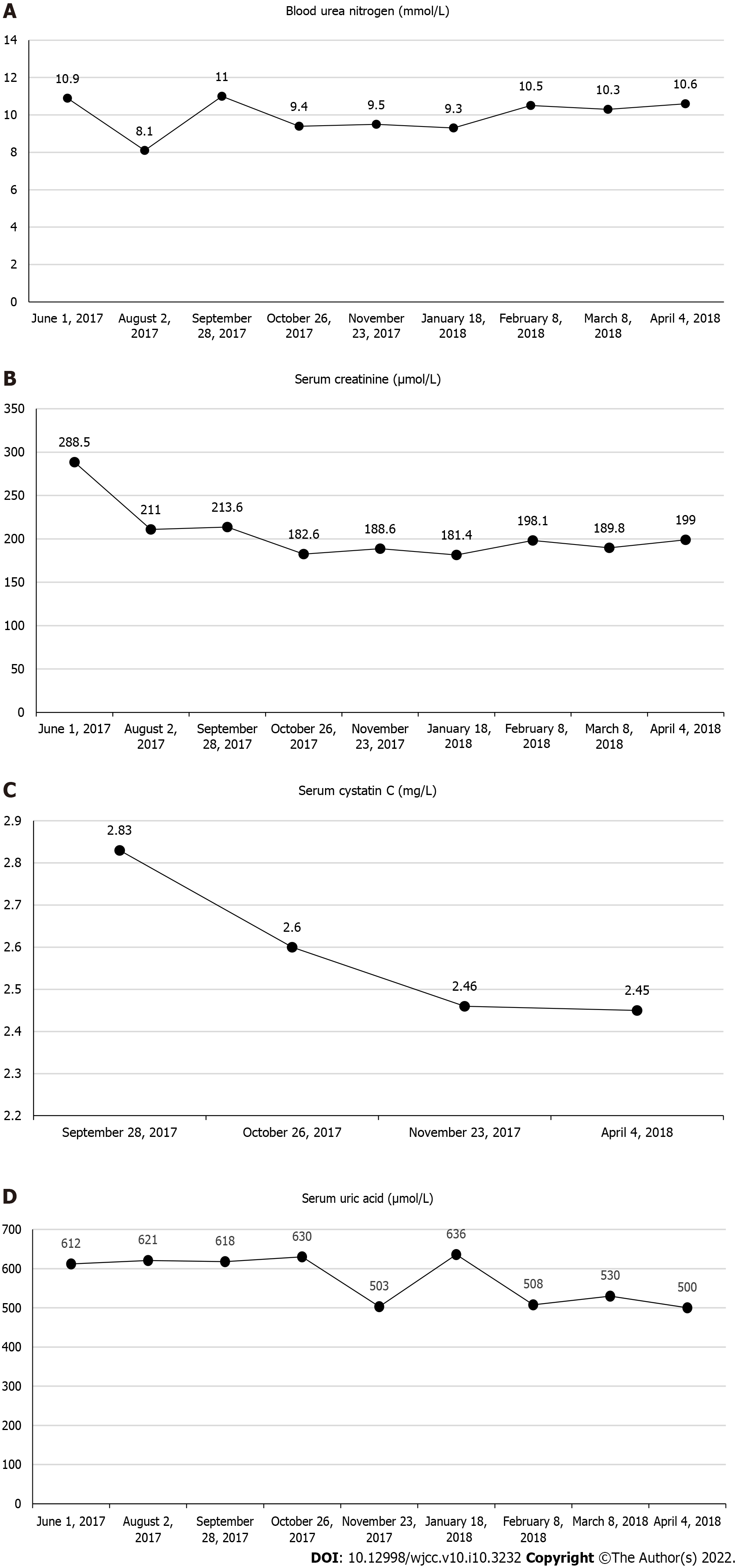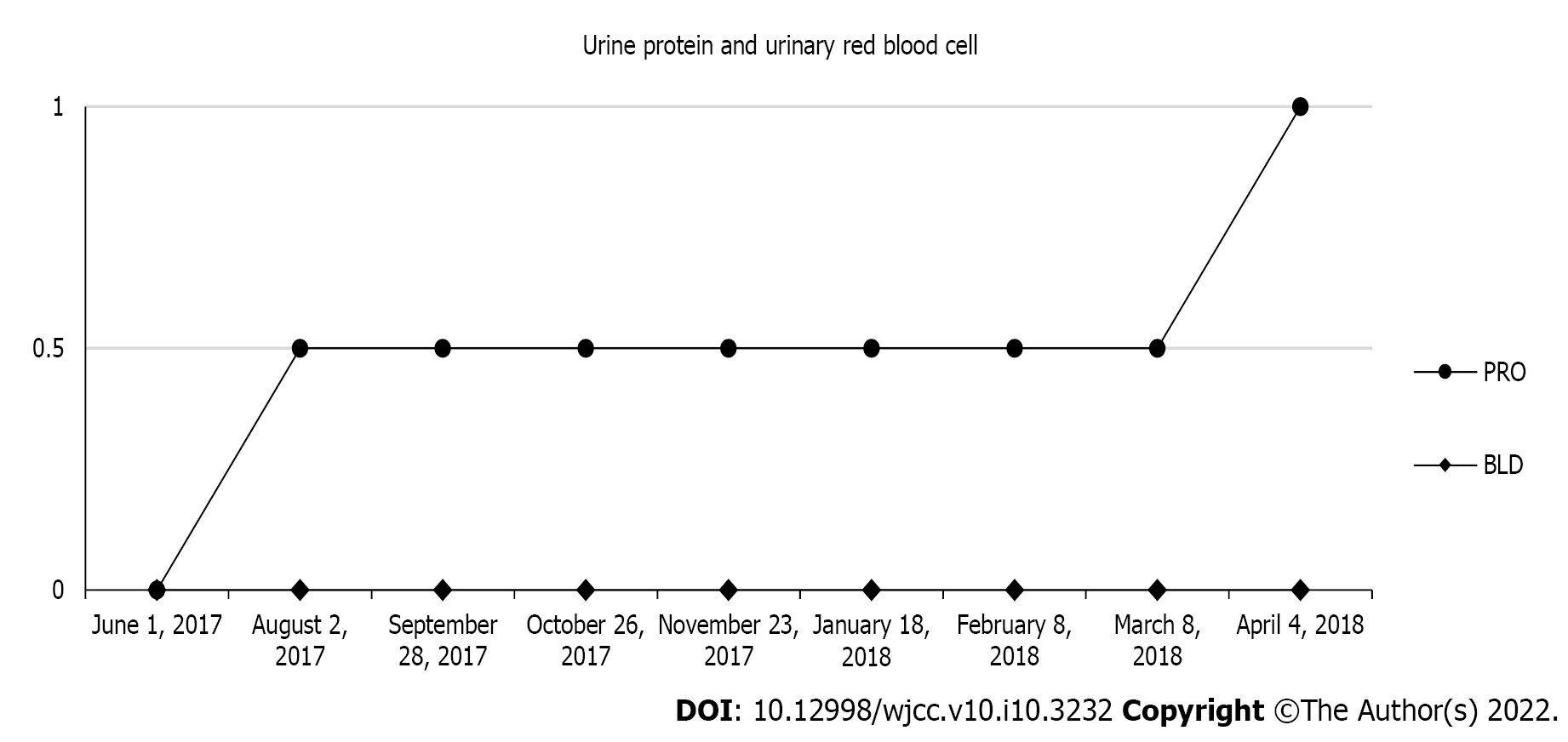Copyright
©The Author(s) 2022.
World J Clin Cases. Apr 6, 2022; 10(10): 3232-3240
Published online Apr 6, 2022. doi: 10.12998/wjcc.v10.i10.3232
Published online Apr 6, 2022. doi: 10.12998/wjcc.v10.i10.3232
Figure 1 Patient’s blood index during follow-up.
A: The patient’s blood urea nitrogen level remained stable; B: The patient’s serum creatinine level gradually decreased and remained stable below 200 µmol/L; C: The patient’s serum cystatin C level constantly decreased; D: The patient’s serum uric acid level decreased from 600 µmol/L to 500 µmol/L. There was an increase in the uric acid level on January 18, 2018, which may have resulted from the previous cold or the patient’s overeating. These were not recorded, and overall, the uric acid level trended downwards.
Figure 2 Change in urine protein level and urinary red blood cell level.
During follow-up, the patient’s urine protein level and urinary red blood cell level kept stable. There was an increase in urine protein level during the last follow-up. But because of the loss of subsequent follow-up, the patient’s later urine protein level was unknown. PRO: Urine protein; BLD: Urinary red blood cell.
- Citation: Zhang YY, Chen YL, Yi L, Gao K. IgA nephropathy treatment with traditional Chinese medicine: A case report. World J Clin Cases 2022; 10(10): 3232-3240
- URL: https://www.wjgnet.com/2307-8960/full/v10/i10/3232.htm
- DOI: https://dx.doi.org/10.12998/wjcc.v10.i10.3232










